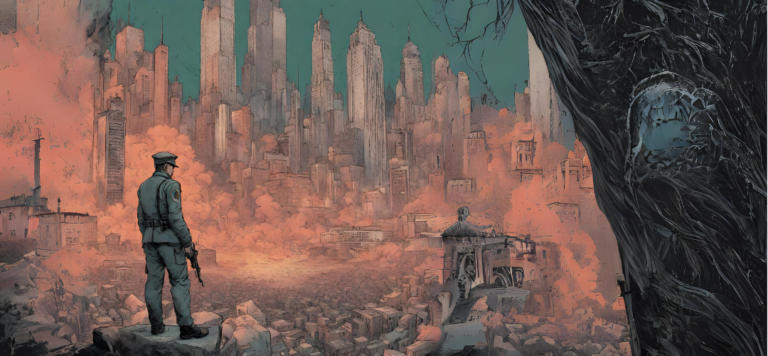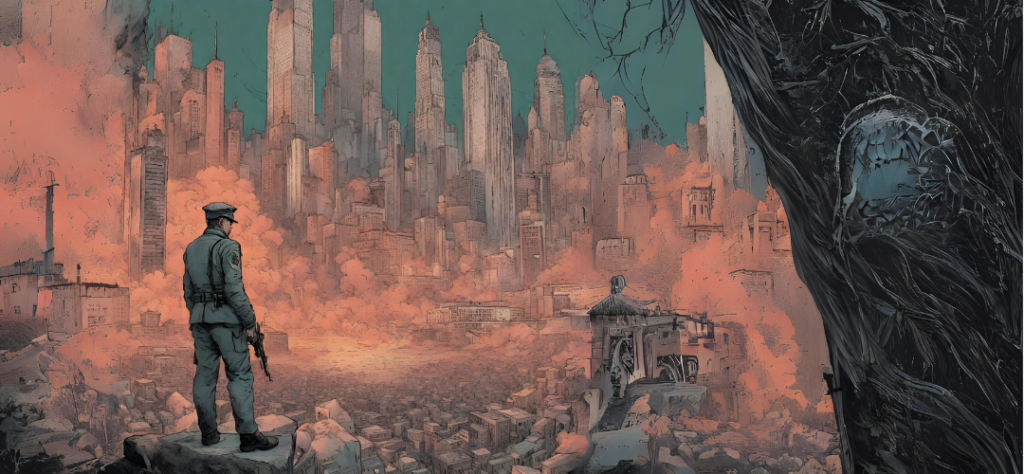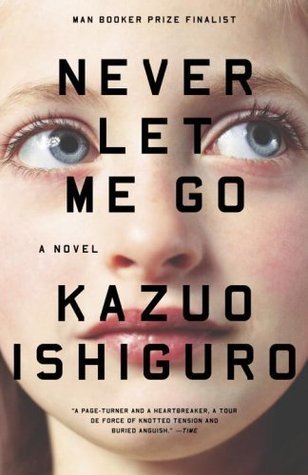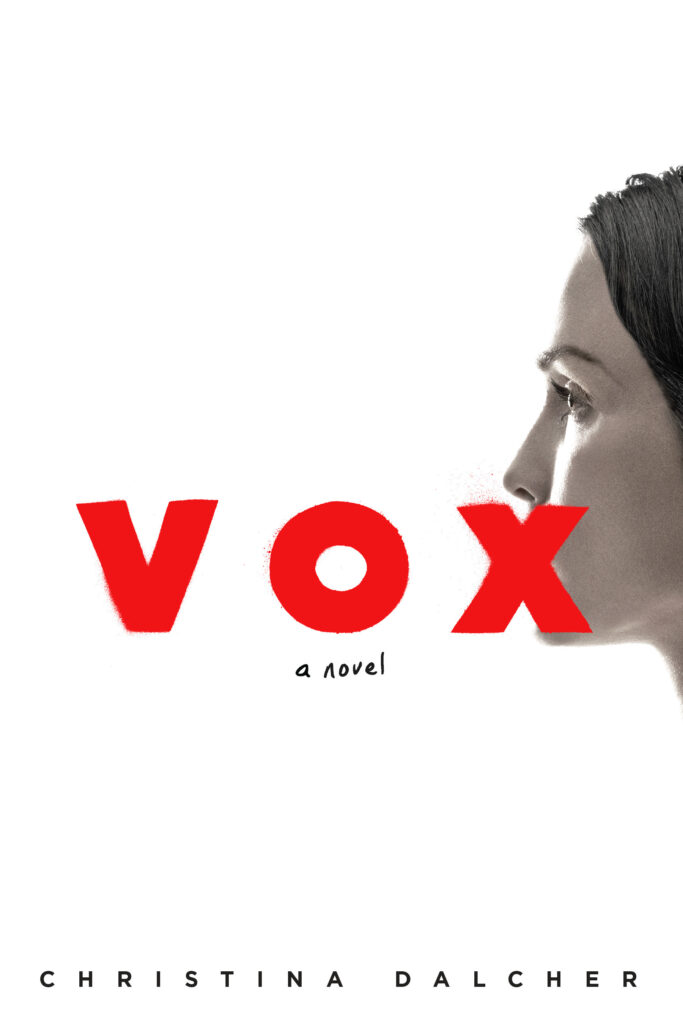
Dystopian Realities:
Totalitarianism and Government Control in Fiction
“Better never means better for everyone. It always means worse for some.”
— Fred (Season 1, Episode 5)
Granted this quote is from the TV show, but The Handmaid’s Tale by Margaret Atwood is a great example of a totalitarian government with control issues. Set in a near-future totalitarian theocracy called Gilead, this novel explores a society where women are subjugated and reduced to roles as reproductive vessels. The government controls every aspect of women’s lives, from their clothing to their relationships, in the name of religious purity and order. Through the eyes of the protagonist, Offred, readers witness the loss of autonomy and the struggle for basic rights in a world where surveillance and control are pervasive.
Of course, since this is my favorite book genre, I can think of a few other novels that parade around in this wolf’s clothing, with oppressive regimes, control, resistance, and the impacts of societal structures on individuals.
Never Let Me Go by Kazuo Ishiguro is also in a dystopian world, this novel follows Kathy, Tommy, and Ruth, who grow up in a mysterious boarding school called Hailsham. As they navigate their relationships and identities, they discover a dark truth about their existence and the purpose society has assigned to them as organ donors. Themes of control, identity, and the ethics of science are prevalent throughout the story.
Vox by Christina Dalcher is a wicked dystopian world where women are limited to speaking only 100 words per day. This novel explores the consequences of silencing women’s voices. Dr. Jean McClellan, a former linguistics professor, finds herself in a society where women are relegated to traditional roles and dissent is punished. It’s a chilling exploration of control, freedom of speech, and resistance.
Dystopian fiction presents imagined societies characterized by oppressive, often nightmarish conditions, serving as cautionary tales about the potential consequences of unchecked power, social inequality, and loss of individual freedoms. Authors depicting governments wielding absolute control, citizens stripped of basic rights, and surveillance everywhere, are often mirroring current societal issues, warning of potential futures if certain paths are taken. The result is novels that prompt readers to reflect on the fragility of democracy, the dangers of conformity, and the importance of defending human rights and freedom in the face of authoritarian tendencies. In an ever-changing world, dystopian fiction remains relevant by challenging readers to question authority, resist complacency, and consider the implications of our actions on the fabric of society.
My novel Sparrows Legacy, the first book of the Sparrow Trilogy tests its society to survive under a magic-based dictatorship. Of the royal family line, usurper Pasi Endric, Uncle of Tara and Teng Swordon has stolen the throne after successfully killing his older sister, their mother. And inciting a civil war within his country. As usual, the strongest magic in Flarentine stems from the royal bloodline, he has an exceptionally strong gift of stealing others’ energy to enhance his ability to strike with his power. This is how he controls his government to agree to his rise to the throne and to track down the only living remaining relatives who can take it from him. Here is a quick sample.
Endric rubbed a finger across his jaw where his beard was rough and thin, just enough to cover an inch-long scar. It was unfortunate he would not get to return the favor and scar those two from head to foot with many like cuts. His fingers flared to life with incensed power at the thought. He made a fist and breathed to calm himself. The flare died as his hand returned to normal. He got up and moved to a nearby table to pour a cup of wine.
“What were you saying, Crudin?”
A balding man in a white robe stood before the dais at the lowest level and held a sheaf of paper clasped in his pale arms. He was one of the council members. “Pasi Endric, the council is meeting to reconcile local tariffs and resolutions for the city. Do you wish to attend?”
“Pashier. The title is Pashier,” Endric stated as he turned to look at the man and waited.
“Pasi Endric. That title is for the…
Endric set his cup down with force, the wine falling across the ground.
The councilman stopped speaking.
Endric raised his hand and pulled a surge of magic into his palm. A floating string of white flew from the very person denying him his title. The small glowing ball of power that formed in his grasp spun with sparks. With careless regard, he lifted his hand and flung it toward the councilman.
Crudin dove to the left and the flaming ball passed him to strike a huge column. A physical blaze rose against the marble; heat and smoke damaged the surface. A few stewards obtained some water and put out the flames. The blackness that remained was striking against the whiteness.
“Pashier! Or, do not return.” Endric stated.
Crudin, eyes were wide and appalled. He mumbled an inane response even as he clutched his chest, his head drawn back stiffly. He whipped his robes around and removed himself from the room.
I find dystopian novels exciting to explore as they tend to draw lines, we readers have never even thought of. And if these novels are not in your library or you are more visually based, try watching some famous movies of similar styles:
- Snowpiercer (2013) Directed by Bong Joon-ho,.
- Equilibrium (2002) – Directed by Kurt Wimmer,
- The Giver (2014) – Directed by Phillip Noyce and based on the novel by Lois Lowry.
Please read and review my serial publishing novel, Sparrow’s Legacy, on Kindle Vella. You can read the first three chapters free on Amazon by searching for “Sparrows Legacy Kindle Vella” or clicking here. Or you can find my debut SFF novel, the space opera Drayton’s Discoveries. For the love of all fantasy and SFF, please leave a review. Feedback is my sole sustenance for writing. Don’t let me starve. If you liked this blog, please be sure to sign up for future blogs on my site jlnichauthor.com.
For those trying the writing game, I want to give a quick shout-out to PLOTTR software. I’ve found it has really improved my writing game and increased my efficiency tremendously. It is my new favorite writing aid. Use any of my affiliate links below and I might get a small commission. Thanks.
Check out my YouTube channel for PLOTTR videos @jlnichauthorsff
Joseph Michael’s Learn Scrivener Fast e-course
Please read and review my serial publishing novel, Sparrow’s Legacy, on Kindle Vella. You can read the first three chapters free on Amazon by searching for “Sparrows Legacy Kindle Vella” or clicking here. I. Please subscribe to my website if you want to be notified when I’ll be publishing or to get free samples of my work.
JL Nich, Science Fiction Fantasy Author



